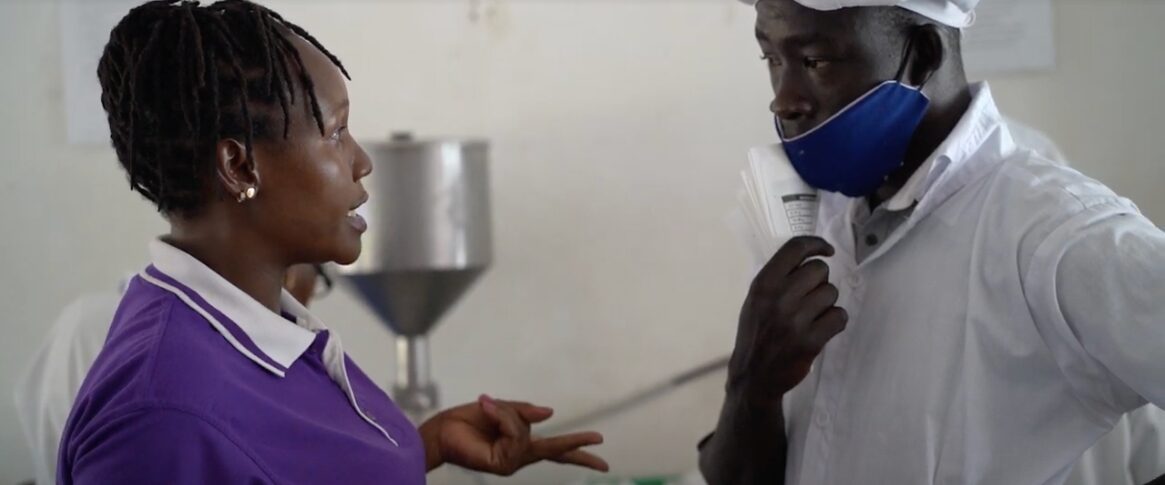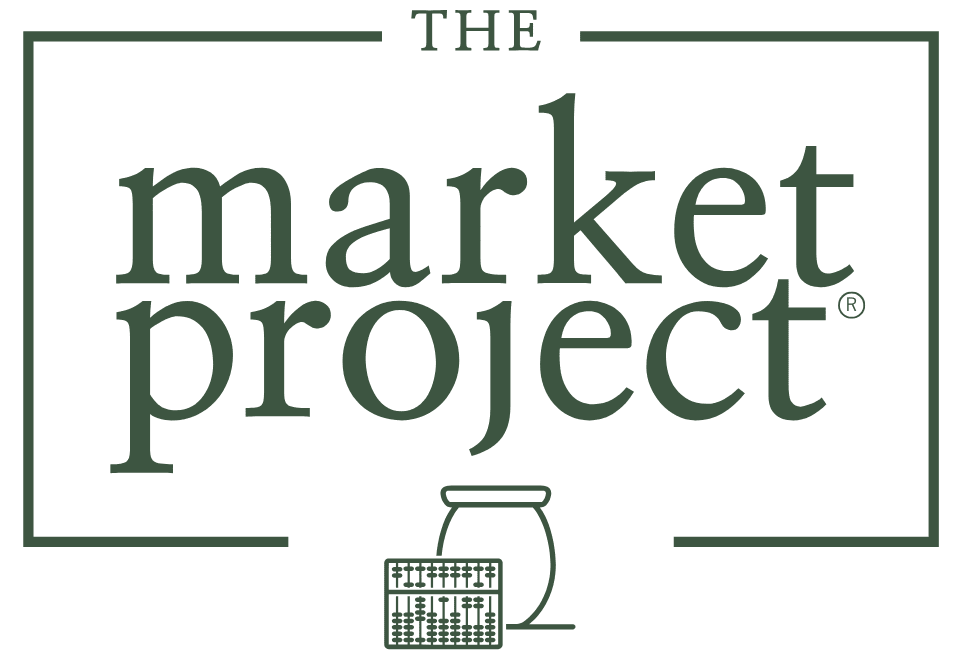Leading by Example

Guiding Businesses to Become Trauma-Informed
A new report by The Global Business Coalition Against Human Trafficking (GBCAT) highlights the work of The Market Project in creating “trauma-informed” businesses for survivors of human trafficking. GBCAT is a business-led initiative committed to preventing and reducing the incidence of human trafficking and other forms of slavery in their operations and global supply chains, as well as supporting survivors of exploitation. The guide, Empowerment and Employment of Survivors of Human Trafficking: A Business Guide, was written by the non-profit BSR and made possible by GBCAT.
To be “trauma-informed” means to acknowledge the trauma an individual has experienced and to connect that lived history with their symptoms and behaviors.[1] The Market Project uses that awareness to improve the workplace environment for the benefit of both the employees and the business.
A safe, stable place of employment is key for survivors.
The Market Project’s business in Uganda, Nguvu Dairy, is highlighted as an example of a trauma-informed workplace that offers stable, safe, dignity-affirming, and healing work for survivors of trauma, exploitation, and trafficking. By providing good and safe employment opportunities, survivors can build the skills necessary to ensure their long-term safety, autonomy, and financial stability. Access to decent and secure work effectively reduces the likelihood of survivors and their families falling back into exploitation. As the guide states, “There is strong evidence that steady employment and a stable financial situation also contribute positively toward the empowerment of survivors.” [2] Northern Uganda, where Nguvu Dairy is located, is a region that has suffered two decades of civil war. Nguvu Dairy currently employs about 135 individuals with different backgrounds and exposures to trauma. The business offers decent compensation. [3]
A trauma-informed workplace offers long-term support to survivors and is especially helpful as they begin work and adjust to expectations.
At Nguvu Dairy, all employees are given the opportunity to understand the impact of trauma in their own lives. In this way, survivors can learn how they themselves have been affected and how their behavior, if at times even subconscious, relates to the trauma they have experienced. The Market Project partners with a local facilitator who offers trauma-healing groups where survivors have the chance to work through and address relational challenges. These healing groups can aid and support survivors through the adjustment period.
Trauma affects every person differently and can manifest itself in very different ways in terms of a survivors’ behavior. A female employee might struggle working under a supervisor who is male, being reminded and triggered by the memories of abuse or sexual exploitation. Other employees might find it challenging to express themselves or their concerns and struggle to meet workplace requirements due to fears brought on by their trauma.
The list of responses can be quite extensive. This is why offering intentional support to survivors who are experiencing difficulties adapting to a work environment is essential. Studies even point to the fact that post work placement, regular engagement with the support team is critical in preventing re-exploitation.[4] Building the entire workplace environment to be trauma-informed, including extensive training for managers and constructive ways for employees to resolve issues and build agency, creates a positive setting for current and future survivors to work through the healing process on a long-term basis.
By providing survivors with employment and empowerment in a trauma-informed workplace, The Market Project serves as an example for business leaders who desire to prevent human trafficking. Trauma-informed business practices are good for employees, the community, and the business. The Market Project is pleased to share its learnings with the global business community.
References
- https://www.bsr.org/reports/GBCAT_Business_Guide_on_Survivor_Empowerment_and_Employment.pdf, page 24.
- https://www.bsr.org/reports/GBCAT_Business_Guide_on_Survivor_Empowerment_and_Employment.pdf , page 10.
- https://marketproject.org/wp-content/uploads/2020/12/ILO-Nguvu-Case-Study.pdf
- https://www.bsr.org/reports/GBCAT_Business_Guide_on_Survivor_Empowerment_and_Employment.pdf, page 25.
Stay up to date on our impact
Join our email newsletter to hear stories of our work.
